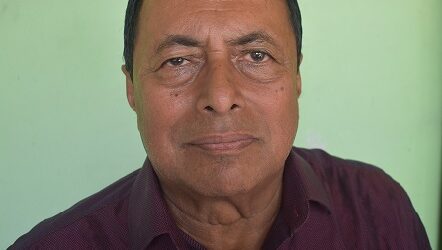
Sukumar Sarker (not real name), a resident of the capital, was a cigarette smoker in his student life. After smoking for a long time, he decided to quit the habit realizing its bad effect on health. He started smoking being inspired by friends. While smoking, he faced health problem and his health condition improved when he quit it.
It is not an isolated incident. Many users of tobacco products like him faced similar problem.
World Health Organization (WHO) said, Bangladesh has historically experienced high production and consumption of tobacco products, resulting in a heavy burden of tobacco-related illnesses.
“35.3% (3.78 crore) people (aged 15 years and above) use tobacco (smoking and smokeless products), while 3.84 crore adult people are victims of second hand smoking at public places and transport, including their work places in Bangladesh, though they are not direct tobacco users”, said Global Adult Tobacco Survey (GATS 2017), adding that, the prevalence of tobacco use is higher in rural areas (37.1%) than in urban areas (29.9%).
Experts said, tobacco is responsible for creating negative effect on public health, national economy and environment.
According to a research finding of Bangladesh Cancer Society, over 62,000 children (aged below 15 years) are suffering from different diseases due to second hand smoking.
Referring to the effect on the nature, Prof. Dr. Arup Ratan Choudhury, founder President of MANAS, an Association for Prevention of Drug Abuse, said soil and water are being polluted as a huge amount of fertilizer and insecticide are being used for cultivation of tobacco. It also causes severe damage to plants in water, including fishes.
Water of Halda river, a place of the country’s natural fish breeding in Khagrachhari district, is being polluted for cultivating tobacco near the river bank for a long time. Besides, tobacco cultivation is responsible for destroying the country’s 31% forest, said Arup Ratan, a renowned anti-tobacco campaigner.
Citing a statistics of WHO, he said about 1.5 billion hectare of forest has been destroyed for cultivation and production of tobacco in the world from 1970 till now, which is responsible for increasing 20% green house gas annually. Besides, a tree is burned for making 300 cigarettes.
Arup Ratan claimed that mortality rate and losses caused by tobacco is more than by coronavirus in Bangladesh. Annually about 1.61 lakh people die of tobacco related diseases in Bangladesh, while only 29131 people died of corona infection till May 31 this year in Bangladesh, he observed.
The use of tobacco products is responsible for many preventable diseases such as cardiovascular diseases, cancer, kidney disease and death across the world. Tobacco brings more harm than benefit.
According to Tobacco Atlas 2020, every year Bangladesh incurs financial loss, caused by tobacco related diseases and untimely death, worth Tk. 30,570 crore. On the other hand, sources said, Bangladesh government on an average receives Tk. 24000 crore as revenue from tobacco sector annually.
Tobacco Atlas 2020 said that over 1.61 lakh people die of tobacco related diseases in Bangladesh every year. Over 12 lakh people are affected by different diseases due to tobacco. Of them, 3.82 lakh are victims of untimely disability.
Head of Epidemiology and Research of National Heart Foundation Prof. Sohel Reza Chowdhury said, people at an early in our country are having heart attacks and 41% of the times it happens due to the consumption of tobacco. The difficulties of curbing tobacco consumption are attributed to the availability of the product. In this context, the amendment of tobacco law can serve an important role in reducing tobacco consumption.
Prof. Sohel Reza said, if we fail to amend the law and reduce tobacco consumption, we will not be able to provide a healthy world to the next generation.
Bangladesh government is committed to amend the Tobacco Act in keeping consistence with Framework Convention on Tobacco Control (FCTC) by giving priority to the implementation of SDGs. FCTC, one of the excellent documents for protection of public health, was signed under the initiative of WHO in 2003 for preventing the massive damage caused by tobacco.
Bangladesh was among the first countries to ratify it in 2004. In the light of FCTC, Bangladesh enacted the ‘Smoking and Tobacco Products Usage (Control) Act, 2005’. Some amendment was made to the Act in 2013 and later the tobacco usage rules were introduced in 2015.
WHO said, despite the enactment of the Act, gaps and loopholes have prevented it from becoming fully effective.
Experts said, publicity and expansion of tobacco products is taking place due to loopholes in the current law, which made it difficult to reduce tobacco use significantly.
They said, the loopholes included allowing designated smoking area in public places, restaurants and public transports that are not confined within four walls, it does not specify anything about product display in point of sales (PoS), allowing corporate social responsibility (CSR) activities of tobacco companies.
It also allows sale of loose cigarettes and the size of health warning on tobacco packet is not fixed which fails to abstain young smokers from smoking, they said, calling for addressing the loopholes as well as emerging tobacco products like e-cigarettes.
(To be continued)
The author is a freelance journalist




